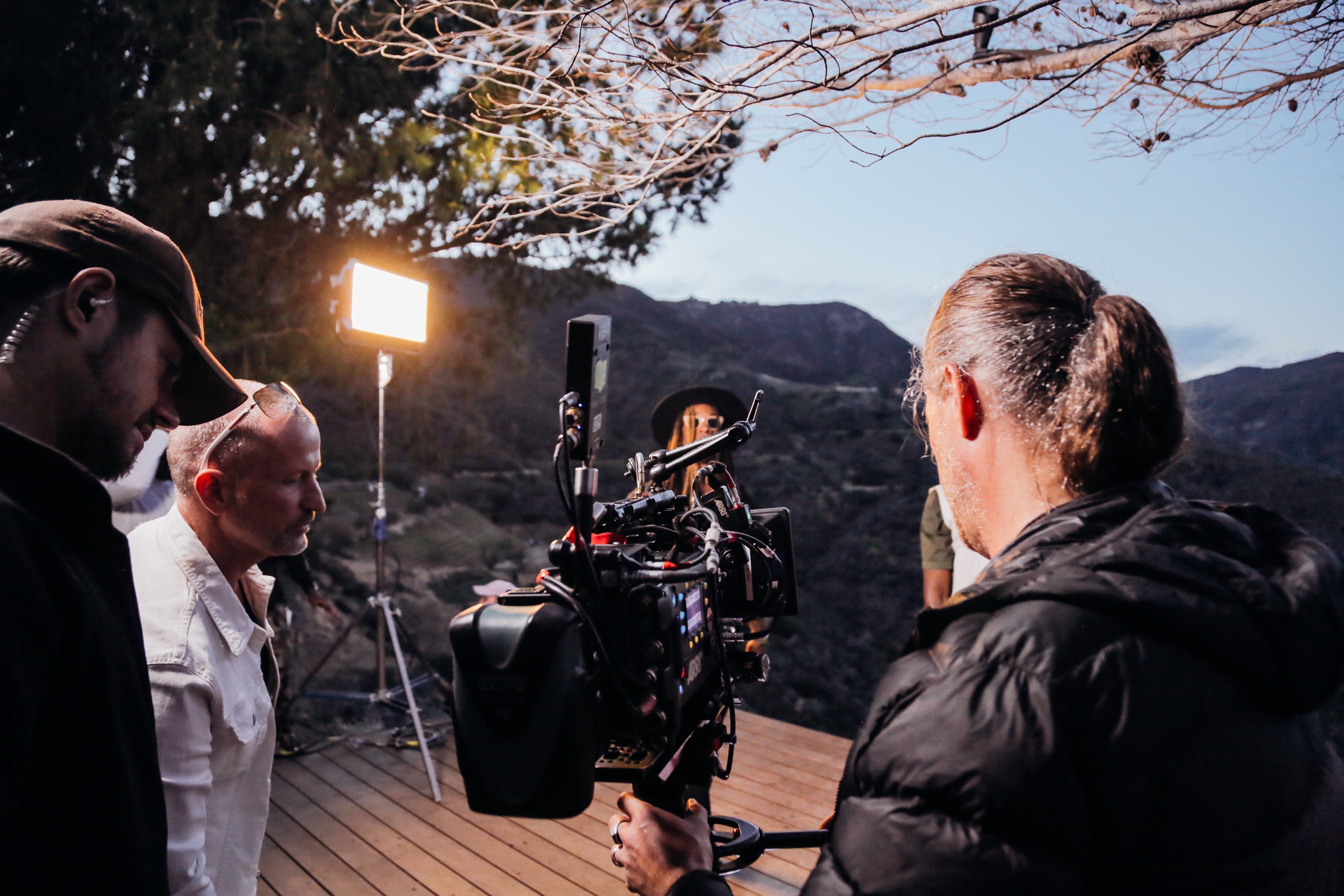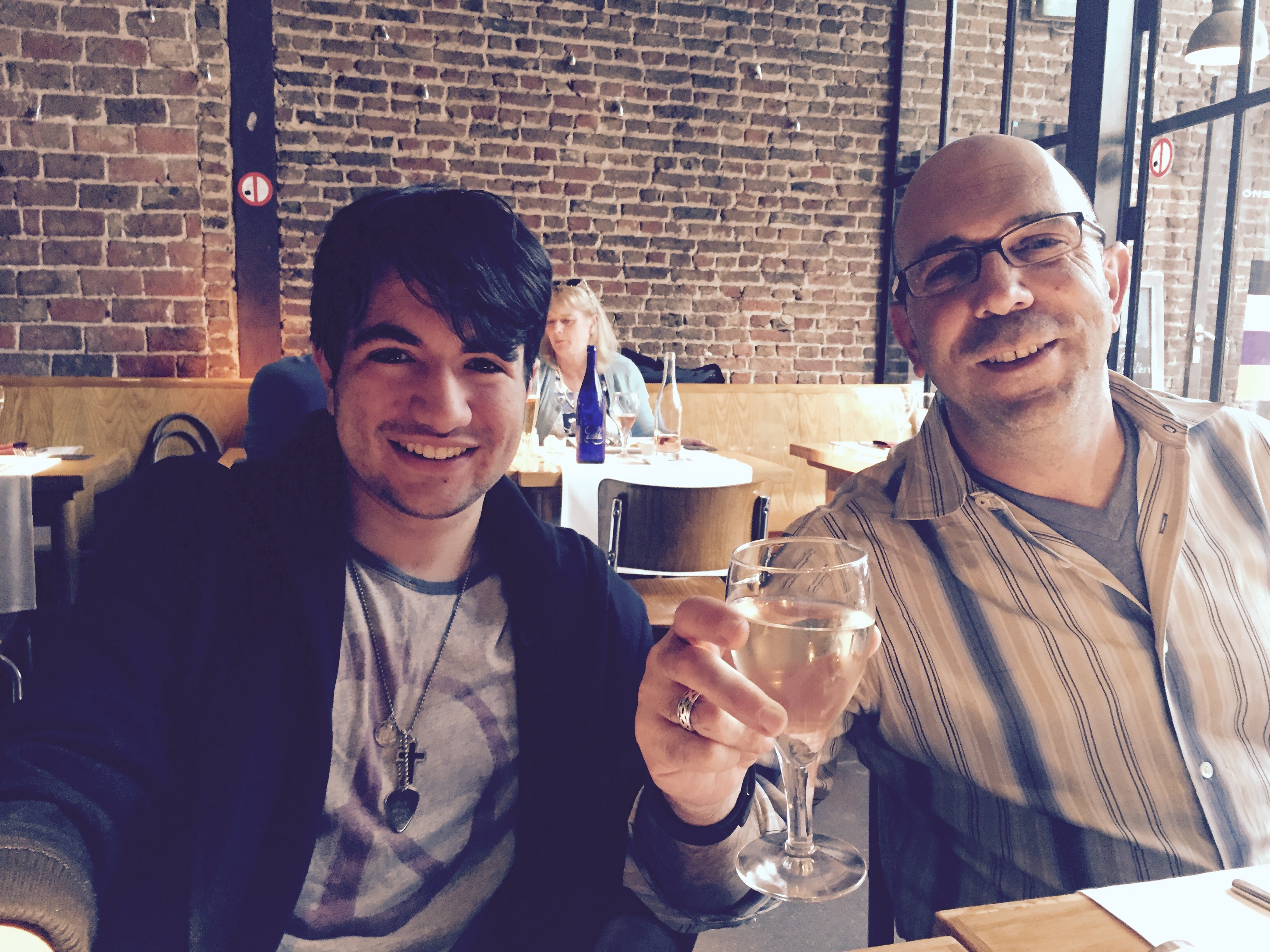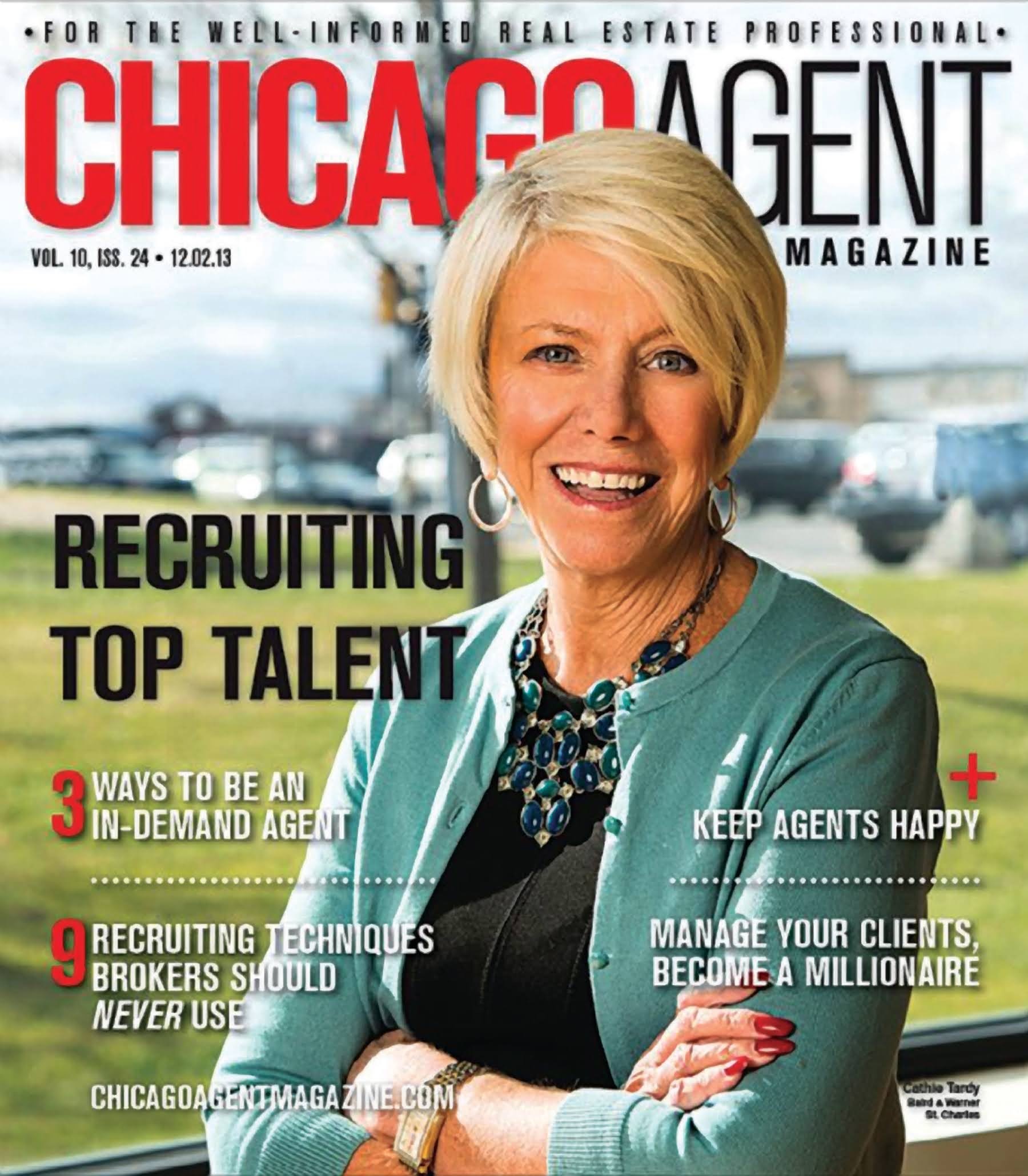
[Flash] It’s Never Not My Department
|


|


Actor-turned-director Olivia Wilde has been promoting her directorial debut film, Booksmart. In one recent interview she reflected:
“I was battling with my insecurity over whether I had earned the right to call myself a Director. How could I possibly direct a movie without going to film school?”
But then she realized that her 17-year career spent on sets has been her film school:
“I spent a significant amount of time shadowing people and asking them questions like Martin Scorsese, Ron Howard, John Favreau, Spike Jonze – people I love and admire. I got the opportunity to watch some of the most incredible directors at work and see them struggle with challenges.
”There really is no better opportunity to learn than watching directors deal with anxiety, stress, chaos, and the unpredictable nature of putting a film together. I absorbed their skills just by watching them move through that.”
Brilliant!
Instead of waiting for a degree or special training, Olivia Wilde sought the knowledge and wisdom of other directors as she developed her own directing skills and style. She asked questions. She shadowed. She intentionally observed. That’s Organic Mentoring!
How can you use Organic Mentoring to grow, develop, and thrive?
If your organization offers any type of Organized Mentoring Program, leverage it to do what Wilde did without one – connect, inquire, shadow, observe, and absorb.
In one of her interviews, Wilde described a particular directing technique that she admittedly “stole” from Martin Scorsese.
But it wasn’t stealing. Scorsese inspired and influenced Wilde’s success – that’s quintessential mentoring!
![]()

When my stepson Jack was in kindergarten, he decided to be Superman for Halloween. And he wanted his dad to be Batman.
So his dad purchased a Batman costume.
As he was leaving the house to attend Jack’s Halloween parade at school, I asked:
”Where’s your costume?”
He held up a bag. “It’s in the bag.”
“When are you going to put it on?”
He replied, “When I get to the school.”
”Where?”
Silence.
”Put the costume on before you leave.”
He was aghast, “You want me to drive to the school wearing a Batman costume??”
“Yes. That’s what Batman would do.”
Begrudgingly he changed into the costume, drove to Jack’s school, ignored the gawking parents in the parking lot, and found Jack’s classroom.
From the other side of the room, Jack saw his dad and shrieked, ”My dad is Batman!!”
His dad broke the “typical parent” script.
In 1959 social psychologist Erving Goffman argued that we are like actors on a stage, creating and developing scripts that others use to understand us.
Scripts are the predictable way that people expect us to behave.
When we break the script, we defy people’s expectations of us or a situation.
Chip and Dan Heath, authors of The Power of Moments, named this “strategic surprise.”
By showing up in a Batman costume, Jack’s dad defied expectations with strategic surprise. As a result, he cemented a memorable experience with his son.
How can we break the script (without a Batman costume)?
Where can you break the script to surprise, delight, and cement a memorable experience?
![]()


We just kicked off another leadership mentoring program for one of our clients.
And I’m bracing myself for the inevitable… Before the end, someone in the program will confess, “I’m so busy. I haven’t connected with my Mentor.”
Of course you’re busy! That’s how you got into the program. By successfully doing a lot of things – by being really great at your job.
Here’s the acute reality: there is nothing urgent about mentoring.
Mentoring is important but it is not urgent. And that’s why we need to do it.
If we are committed to successfully managing AND leading, it’s imperative that we learn how to distinguish and serve the urgent (the issues, the immediate needs, the emergencies) while making time for the important. It’s a critical, yet overlooked distinction of strong leadership.
So how should we define “important”?
By participating in a mentoring relationship, we have the opportunity to practice the art of intentionally advancing the important while effectively managing the urgent.
And if we can learn how to make time for the important-but-not-urgent, we’ll have an impact at work (and in life) well beyond our job titles.
So how do you advance the important while managing the urgent?
Frankly, I don’t care if participants accomplish their goals in the mentoring program. I only care that they care.
When we are intentional with our time, our relationships, and our communications, we can undertake the important-but-not-urgent, navigate the urgent, and make a difference that ripples.


Actor Jason Segal’s career is the product of open-a-door mentorship.
While he is currently starring in one of my favorite television shows, Shrinking, Jason found the joy of the spotlight in high school.
His acting coach, Ted Walsh, noticed his talents on the stage and opened a door for him.
Without telling Jason, Coach Ted created a secret showcase of an upcoming theatrical performance, inviting casting directors from different studios around Hollywood to witness Jason’s talents.
Based on rave reviews, Coach Ted then met with Jason’s parents to advocate for a career as an actor. He urged, “I think your son can do acting for a living if he wants to.”
Shortly thereafter, Jason was cast in the television show Freaks and Geeks, directed and produced by Judd Apatow.
And another door was opened.
Apatow recognized Jason’s gift of improv, offering this advice, “If you can improv the way you’re improv-ing on this show, you can write scripts. You just need to learn how. So, I’m going to teach you.” Apatow taught Jason script writing and opened another door.
Goading Jason, Apatow said, “Listen, Jason. You’re a weird dude. The only way you’re going to make it is if you write your own material.” This inspired Jason to start writing the script for his movie Forgetting Sarah Marshall.
After working together on a few movies, Apatow asked about Jason’s projects, “Are you working on any new ideas?” Jason pitched his movie. Apatow’s response: “Go write it. We’ll shoot it next year.” The next door opened.
Most recently, when the creators of Ted Lasso formulated the idea for Shrinking, they offered Jason the opportunity to partner. Jason is now a co-creator, co-writer, co-producer, and one of the stars in the new fan favorite. Another door opened.
Deliberate mentors see ahead and around corners. They pay attention to aspirations, identify opportunities, and encourage their mentees.
As evidenced by those who have opened doors for Jason and nudged him forward, labels don’t make a mentor; purposed actions do.
Likewise, numbly implementing advice doesn’t make a mentee; thoughtfully interpreting and invoking ideas does.
Opened doors only work when a mentee walks through them. Like every mentee, Jason had to recognize contributions, embrace the opportunities, and take risks.
The overstory? Courage.
Bravery is revealed by and through open-a-door mentoring.
![]()
© 2024. Ann Tardy and MentorLead. www.mentorlead.com. All Rights Reserved.
ps. Have you registered yet for our 2024-Q4 complimentary webinar?
“Boost Mentoring Participation: Harness Motivation to Drive Employee Engagement and Retention”
Date: Thurs Nov 14 @ 11am PT | 12pm MT | 1pm CT | 2pm ET
Register: www.mentorlead.com/webinars

|
“Mattering” is a universal human need, essential for flourishing, according to Dr. Felt, a professor at York University.
What does it mean to matter? Adding value. + Feeling valued. Even when we know we added value, we only feel valued when we feel recognized and appreciated. When mentoring matters… Absolutely! We launched a peer-manager mentoring program, pairing low-performing managers with high-performing managers in a formal, structured mentoring experience that we infused with leadership training. The result? Within six months, 75% of those low-performers became high-performers! Success! But what happened next surprised me… Monica, one of the mentors, expressed disappointment with the experience, sharing, “I know I made a difference for my mentee! She is now thriving as a manager! It was a delight to help her.” Confused, I said, “That’s wonderful… So, what happened?” Monica said, “My boss never brought it up. He never mentioned my participation in the mentoring program… like it didn’t matter.” In other words, Monica knew she added value – she witnessed the impact of her effort! But she didn’t feel valued. Her boss never acknowledged her mentoring experience, her contributions to save a manager, or growth as a leader. [To be fair, he probably didn’t even know about her participation!] We are each on a quest to matter. We don’t go to work hoping to feel insignificant and irrelevant! We strive to add value and want to feel recognized, appreciated, and valued for doing so. Feeling valued is powerful – it validates our capability, importance, and trustworthiness. So, how can we feel valued for adding value? How can we help others feel valued?
When my mom went into hospice this year, her friends and colleagues immediately sent notes and cards, reflecting on their shared journey, acknowledging her mentoring, her friendship, and the difference she made. My favorite was from one of her former employees, Beatriz: At the end, my mom knew she mattered. © 2024. Ann Tardy and MentorLead. www.mentorlead.com. All Rights Reserved. |

|
Many people consider him to be one of the greatest football coaches of all time.
Nick Saban coached from 1973 until his retirement in 2023. He is famous for leading the University of Alabama football team to six national championship games over 16 years. Today, Saban is a sportscaster for ESPN’s College GameDay. Recently on the show, Saban reflected on his own evolution as a coach: “When things go sideways, you have a greater chance of losing your team when you’re a transactional leader, which is how I was until 1998. Everything was about winning or losing. When we won, I [celebrated] people. But when we didn’t win, I was harsh. I didn’t use [the loss] as a teaching moment. Negative moments without teaching kills morale. In 1998, we were 4 [wins] and 5 [losses], and Michigan State was getting ready to fire me. I didn’t think we could win the game. So, I said, “What’s my approach going to be?” I had to change into a transformational leader. Somebody who:
We actually won that game. We became a different kind of team. And I turned around my coaching career. If you want to save a team, you must become a transformational leader instead of a transactional one. “ Saban then mused that most exchanges are transactional, preoccupied with time, money, and winning. When that occurs, leaders become too focused on the outcome rather than the process. Transformation aims for profound, longer-lasting change. Saban concluded, “Transformational means you have passion and something you want to accomplish. You’re not worried about the immediate self-gratification you’re going to get. You’re trying to create value for your future.” Mentoring is transformational leadership in action. People volunteer to mentor not because they are bored, looking for more commitments. Rather, they are fueled by a passionate desire to contribute – investing in their growth and someone else’s. Mentoring attracts those who:
Inevitably, mentors confess, “Mentoring fills my cup!” Of course, it does… because when our lives become saturated and sedated with transactional exchanges, people are drawn to the transformative experience of mentoring. Mean people don’t mentor. Earnest people do. |

|
Gentoo penguins in Antarctica strengthen their connections with each other by collecting and sharing pebbles.
Why pebbles? Because penguins use pebbles to build nests. So, the simple act of bringing rocks to another penguin signals a desire to develop a relationship. Similarly, with humans, “pebbling” entails small, consistent acts of attention and communication. And in mentoring, pebbles are potent. They demonstrate an ongoing effort to connect, engage, and cultivate a mentoring relationship. Pebbling communicates our respect for a mentee – we value the relationship and want to invest in it, not just serve as a monthly checkpoint. The “pebbles” we share do not entail enormous exertions of time, effort, or resources – they are small and considerate gifts:
Pebbling is a modest effort with a mighty impact. People often feel isolated at work and in life because their overconsumption of technology individualizes their experiences. Pebbling restores interaction. It prevents the emotional drift that can occur from isolation. The simple act of pebbling conveys to our mentee, “I see you. I heard you. I know you. I’m here. You belong. You are important to me. I’m thinking of you.” Being seen, remembered, and acknowledged, strengthens the connection and trust between a mentor and a mentee. My mom managed and mentored a real estate office of one hundred realtors. Every year, she personally called each realtor on their birthday to sing, even on voicemail. She never missed the opportunity to make them feel special. Deepening the relationships and their trust was too important. If pebbling is so effective, what stops us from leveraging it?
But mentees need to be on our radar, not just our calendar. When they are, pebbling becomes an extension of our mentoring – an opportunity to contribute between the cadence of scheduled meetings. If we want to influence a mentee’s learning journey, we must infuse ourselves into it. © 2024. Ann Tardy and MentorLead. www.mentorlead.com. All Rights Reserved. |